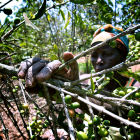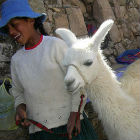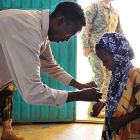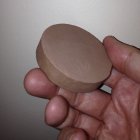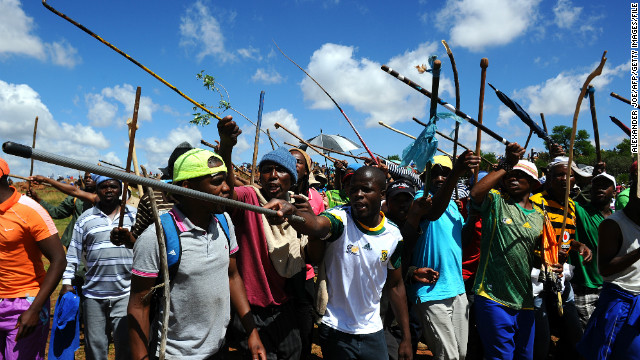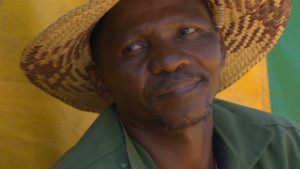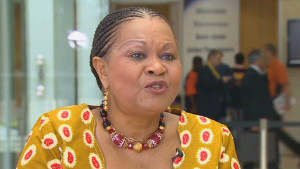Dozens killed in attacks in Somali capital |
Al-Qaeda-linked al-Shabab claims responsibility for two attacks in Mogadishu that left more than 30 people dead.
Last Modified: 14 Apr 2013 23:33
|
| Armed men dressed in Somali police uniforms have stormed the court complex in the capital Mogadishu killing a number of people, before a gun battle erupted with security forces besieging the compound. Hours after the attack at the court on Sunday, a large blast hit an area on the road to the Mogadishu airport, residents said. Somali officials told Al Jazeera that nine fighters dressed in police uniforms attacked the court complex killed ten national security officers outside the court complex before entering. Once inside the court, the fighters killed at least three people, including two lawyers and a spokesperson of the court. An al-Shabab spokesperson claimed responsibility for the attacks, telling Al Jazeera that as a state institution the court complex was a "legitimate target". Hours later, a car bomb exploded at a building housing Somali intelligence along the road to the airport as Turkish and African Union (AU) vehicles were passing, police and witnesses said. Government forces then opened fire and blocked the road. "The car bomb exploded near the gate of a building housing the Somali security. AU and Turkish cars were also passing there. We are still investigating the target and casualties," Qadar Ali, a police officer told the Reuters news agency. A Turkish official who spoke on condition of anonymity told Reuters that one of its Red Crescent vehicles was passing at the time of the explosion. A Somali driver was killed and three Turkish passengers were wounded, the official said. In total, Somali officials said more than 30 people were killed on Sunday, including the nine fighters who stormed the court. |
Rare footage from inside Nigeria's hidden conflict
Troops on the lookout for the next suicide bomber stand guard on street corners, their positions protected by sandbags.
The streets are lined by deserted buildings, peppered with bullet holes, and people must abide by a dusk-to-dawn curfew.
Banks close at 1300, markets from 1600, and many children are no longer able to attend school after buildings were burnt down.
The Boko Haram group behind the faceless campaign of terror gripping the city, is fighting to create an Islamic state in Nigeria's predominantly Muslim north.
Drive-by motorbike assassinations of politicians and policemen became their modus operandi, but their activities have grown in confidence and scale, spreading to other states in the region too. The group's official name is Jama'atu Ahlis Sunna Lidda'awati wal-Jihad, which in Arabic means: "People Committed to the Propagation of the Prophet's Teachings and Jihad".
 But Maiduguri's residents dubbed them Boko Haram, which loosely translated from the local Hausa language means: "Western education is forbidden".
But Maiduguri's residents dubbed them Boko Haram, which loosely translated from the local Hausa language means: "Western education is forbidden".
The group promotes a version of Islam which forbids Muslims from taking part in any political or social activity associated with Western society, including voting in elections, wearing shirts and trousers or receiving a secular education.
Brutal crackdown
The group has been blamed for the deaths of some 1,400 people in central and northern Nigeria since 2010.
Maiduguri locals say this building is a feared detention centre and have nicknamed it Guantanamo
"As it is, you can't even tell if your neighbour is a member," one Maiduguri resident told me, "and you dare not talk about them in public." Boko Haram's members are so well-embedded in the community here, that it is almost impossible to know who is Boko Haram and who is not.
The Nigerian state has responded by deploying the Joint Task Force (JTF), an elite military and police intelligence force, and the crackdown has been brutal.
People are being killed by unknown gunmen and the military is accused of killing and detaining innocent people without trial.
Many people are fleeing because of the insecurity and entire neighbourhoods in this once-prosperous city are now completely deserted because the army has warned residents to relocate, so they can try to "weed out" members of Boko Haram.
One of the displaced agreed to take me to his house. On an eerily quiet street, he unlocked a padlock to show me around the dusty, cobwebbed four rooms where he once happily lived with his family.
"It's been over four months since I left this house," he explained.
"There was an incident in the neighbourhood and soldiers told us to leave and the house has been locked since then. I have been trying to return but I am scared because I don't know what would happen."
One widow told me her husband was killed in 2011 by soldiers on a sweep for Boko Haram. She says he pleaded he had nothing to do with the insurgents but they shot him in the street.
"We heard gunshots while at home and thought Boko Haram had attacked the area," the 28-year-old mother of four told me.
"Outside we saw a military vehicle so we ran in the direction of the soldiers seeking their help. Soldiers pushed us into the gutter and took matches and kerosene from inside my house. Then they burnt my house down.
"Witnesses saw soldiers talking to my husband for 15 minutes. Then they shot and killed him and burnt his car."
'Empty promises' Almost every family I meet has a grim story to tell.
Twelve-year-old girl
Many parents told me their young adult male children have been in military detention for several months and they have not been allowed to visit them.
Sources say there are thousands of young men being held in various detention centres across the city."They took my son while he was sleeping and slapped his wife who was six months pregnant," one woman told me.
 "It's been a year and eight months now since they took him and I haven't heard anything. I have tried my best to know why he is being held, but without success. The soldiers keep saying that they would release our children but it is all empty promises."
"It's been a year and eight months now since they took him and I haven't heard anything. I have tried my best to know why he is being held, but without success. The soldiers keep saying that they would release our children but it is all empty promises."
Both the Nigerian constitution and Terrorism Prevention Act clearly state that detainees should be brought to court within a reasonable time. But one of Maiduguri's top lawyers told me that has not been happening.
"People are in detention in JTF custody since 2011," he told me, "since they came to Maiduguri they did not take a single person to court."
When asked about allegations of detentions and human rights abuses by serving military officers, Nigerian Army Chief of Staff Lieutenant General Onyeabo Azubuike Ihejirika told the BBC:"I've not received a single case against any single identified soldier or officer as Chief of Staff."
Some of the more fortunate come to the Future Prowess Islamic Foundation orphanage, where free breakfasts and primary education are provided for children whose parents have been killed by either the army or the insurgents.
The school is so popular it has a lengthy waiting list.
I visited at playtime while the pupils played outside in the sunshine. But behind the chanting and clapping, almost every child has a chilling story to tell.
"Two men broke into our house in the middle of the night and pulled my father from his mosquito net," one 12-year-old girl told me. "They shot him, slit his throat and used water from our kettle to clean their knife.
"My mother covered the body and we prayed."
Across Nigeria, many worry that if resentment against the state builds, it may make recruitment for the insurgents easier.
And as Boko Haram widen their campaign by kidnapping foreigners to reflect their wider regional ambitions, it seems there is no end in sight to the conflict plaguing the country.
This report was first broadcast on BBC Newsnight on Tuesday 12 March, 2013.

















